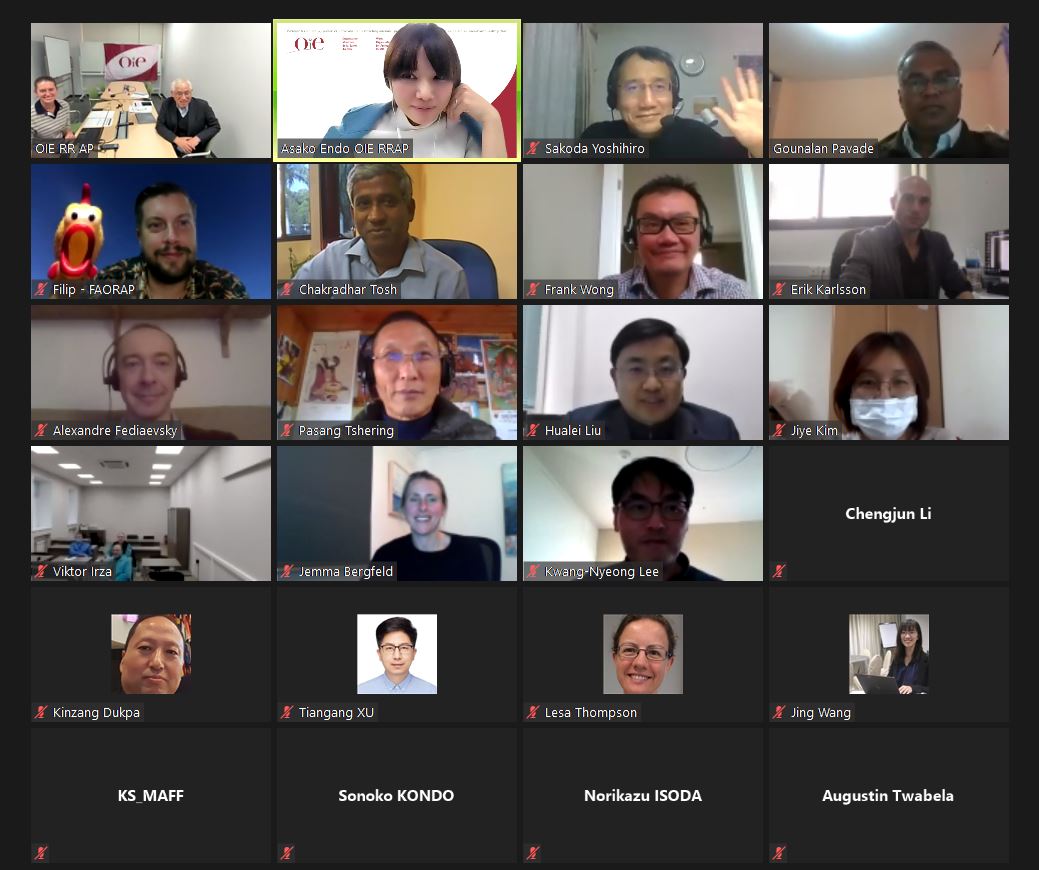Poultry provide a valuable source of protein, through both meat and eggs for many communities in the Asia Pacific region and diseases of poultry continue to have an impact from commercial production to backyard and subsistence farming.
Avian influenza continues to cause severe loses in poultry and pose a zoonotic threat to human populations in many countries in Asia Pacific region. The outbreaks of AI impacted animal and public health, trade and economy in affected countries. Human infections with zoonotic influenzas especially avian influenza virus H5N1 and H7N9 have occurred in countries in Asia Pacific region since 2003 causing a serious public health threat.
In the Asia-Pacific region, annual regional workshops have been organised to review progress in prevention and control of various animal disease and to define the way forward to further strengthen multi-sectoral and international coordination and collaboration. Experts working on avian influenza in Asia have recommended more opportunities are needed to collaborate, share surveillance data and information on viral information.
It was also recognised that to develop effective national and regional control programs, other poultry diseases and their impact should be taken into consideration. There are currently 11 OIE listed diseases for avian species.
Hokkaido University in Sapporo, Japan, hosts one of OIE’s Reference Laboratories for avian influenza and as such is at the forefront of scientific knowledge in the field. They have hosted previous Avian Influenza and poultry disease workshops, bringing together participants from OIE reference laboratories in Asia and the Pacific, national laboratories, veterinary authorities, international organisations, and other poultry disease experts.
At the workshop in 2019 it was agreed among the reference experts to form a network and have regular meetings to discuss issues specific to poultry diseases.
With restrictions on travel as a result of the global pandemic caused with SARS-COV2, it was proposed to hold the network meeting by video-conference and follow this with a workshop involving regional OIE/FAO members to discuss on control strategies for poultry disease.
The workshop provided a regional platform for discussion on current and future issues on poultry disease surveillance, outbreak management, national policies and their implementation to control poultry diseases in the region.
Objectives:
Day 1 was organised among the poultry disease expert network and the summary of the discussion was shared on Day 2 meeting, where OIE/FAO members from Asia and the Pacific, OIE/FAO staff and poultry disease experts were invited.
Day 1 presentations not published.
